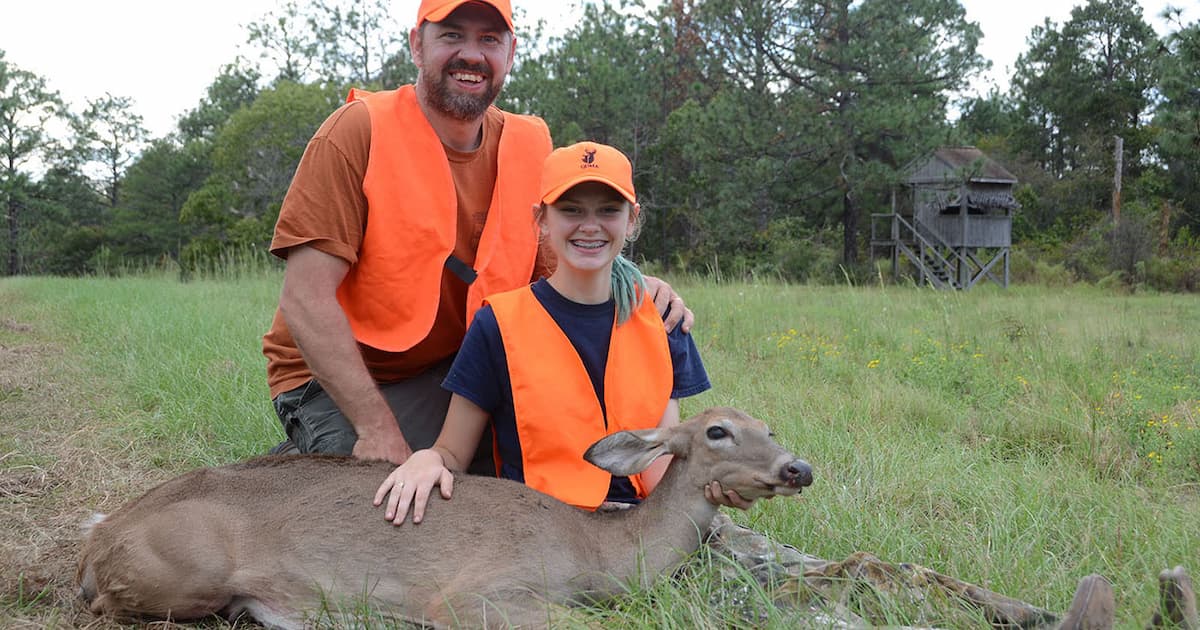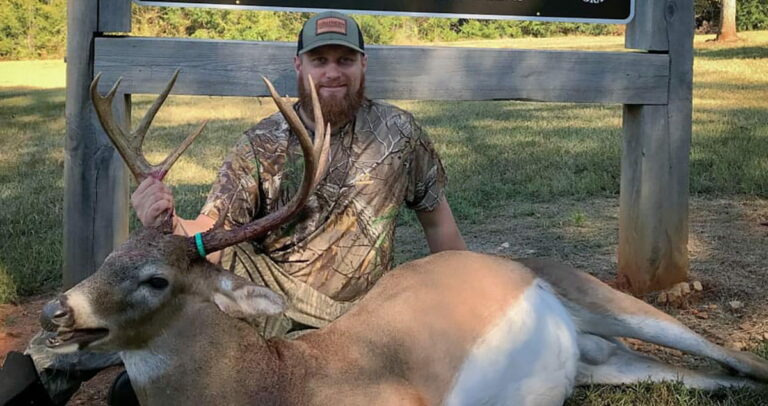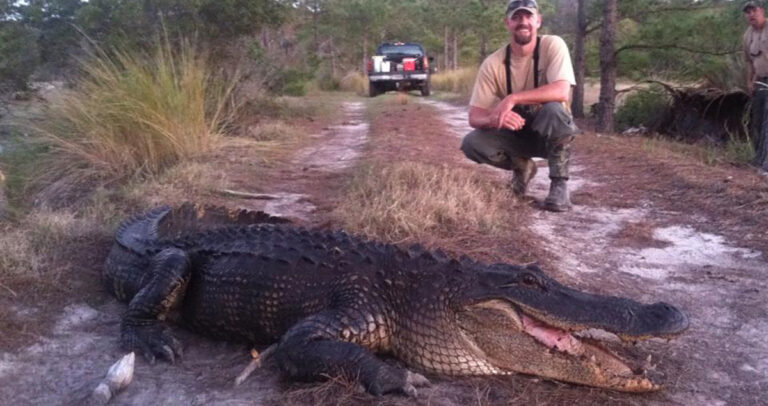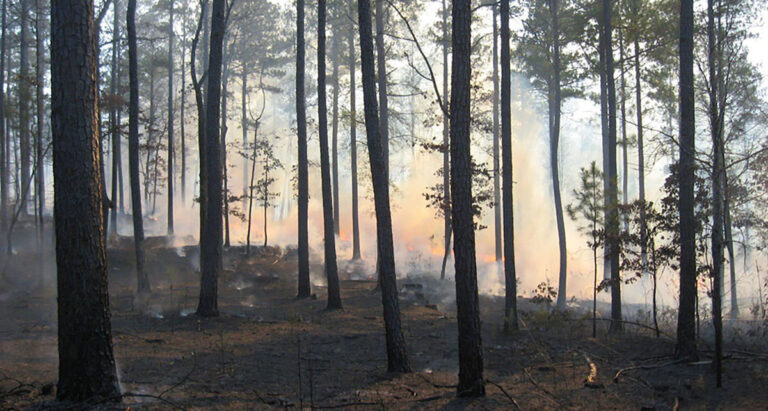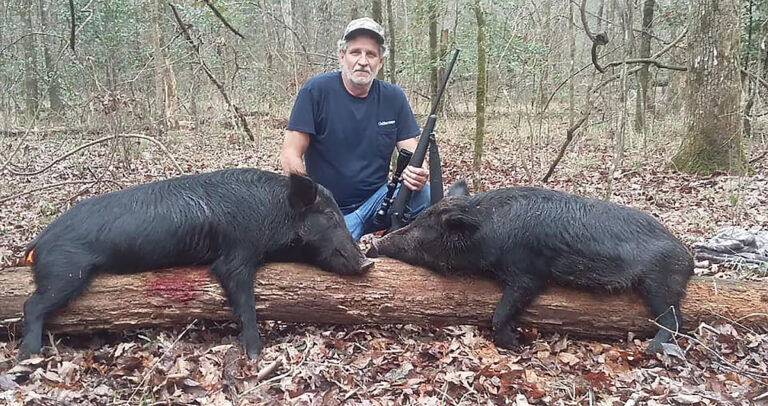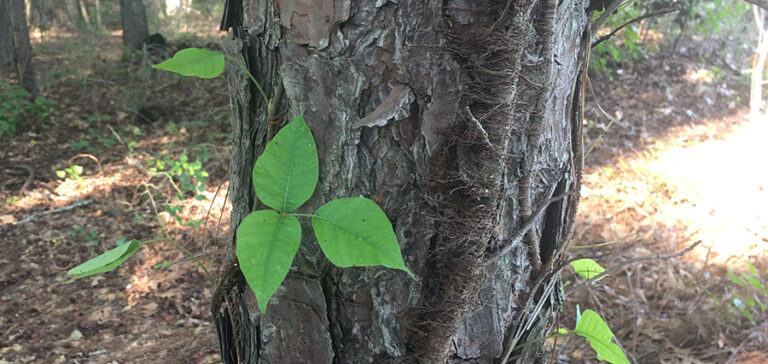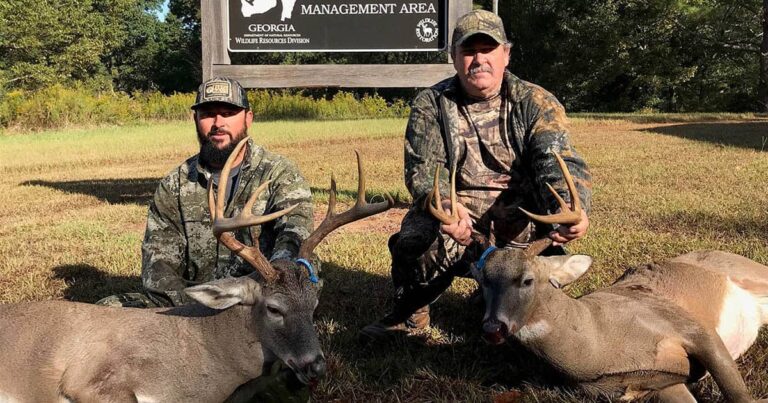How to Get Started Hunting in Georgia
JUMP TO: Licenses and Permits | Hunter Education Requirements | Finding a Place to Hunt | Learn to Hunt
If you’re a Georgia resident looking to start hunting the Peach State, you’ve come to the right place. In this comprehensive guide, we go over everything you need to know, including which licenses and permits you’ll need, whether or not you need hunter education training, as well as how to find a place to hunt.
What this article does not cover is how to hunt. That’s a much bigger topic! But we do provide some resources below if you’re looking to to learn.
If you still have questions after reading our guide, please drop them in the comments section below, and I’ll do my best to answer them.
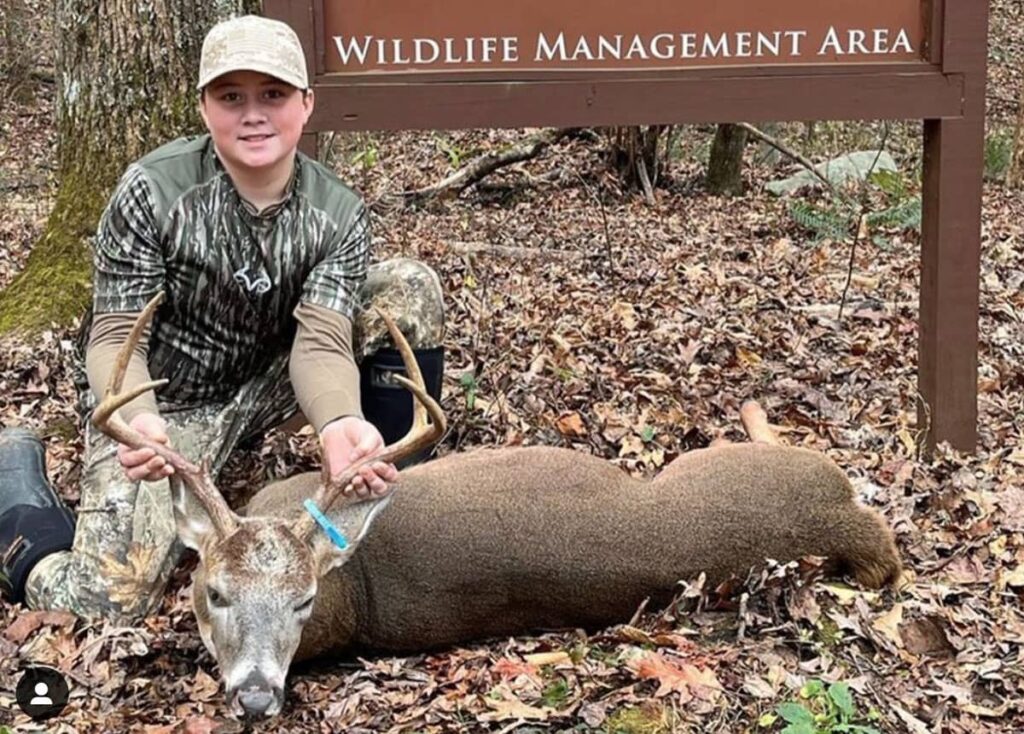
Step 1: Get the Necessary Licenses and Permits
Fortunately for Georgia residents, hunting is very affordable, with the necessary licenses and permits costing between $15 and $90 per year, depending on what you want to hunt.
All hunters age 16 and older are required to purchase a Georgia hunting license. That license enables you to hunt small game species like squirrel, rabbit, quail, and other furbearers. It also gives you access to Georgia’s wildlife management areas (WMAs) and national forests.
If you’re planning on hunting any big game species, like deer, turkey, or bear, then in addition to a hunting license, you will also need a Big Game License and Harvest Record.
If you would like to hunt doves or waterfowl, you will need a hunting license and a Georgia Migratory Bird Stamp. Waterfowl hunters will also need a federal duck stamp. More on those requirements and pricing in the table below.
| Type of Hunting | License Requirements | Total Cost (Resident) |
| Small Game | Hunting license | $15 |
| Deer and Bear | Hunting license and Big Game license | $40 |
| Hog | Hunting license | $15 |
| Alligator | Hunting license and Alligator Harvest permit | $90 |
| Dove | Hunting license and Georgia Migratory Bird stamp | $20 |
| Waterfowl | Hunting license, Georgia Migratory Bird stamp, and Federal Duck Stamp | $45 |
If you are a Georgia resident landowner, then you do not need to purchase any licenses or permits to hunt on your own property. However, you still need a free Harvest Record and will need to report any big game harvested through the state’s game check system.

Step 2: Take a Hunter Education Course (if needed)
In Georgia anyone age 16 and over, born on or after January 1, 1961, must complete a hunter education course prior to hunting. Youth hunters ages 12 to 15 will also need to pass hunter education if they plan to hunt unsupervised.
Fortunately, hunter education has never been easier to complete. You can now take the course completely online for between $20 and $30.
If you prefer to learn in-person, the Georgia DNR still holds three-day courses across the state that are free to attend. You can find an upcoming course on their website.
For those who want to give hunting a try, but you’re not ready to commit to investing in a hunter safety course, Georgia offers an Apprentice Hunting License ($5/day) that allows you to hunt without the need for Hunter Safety certification.
Step 3: Find a Place to Hunt
One of the biggest challenges for a new hunter is finding a place to hunt. In this section, we’ll discuss both private and public land options, and how you can find and take advantage of each.
Private Land
Gaining access to private land in Georgia can be difficult. I quickly found that out after moving here from Kentucky in 2011.
Much of the state’s private land is either already hunted by the landowner or their family members, or leased to other hunters long-term. That’s not to say you can’t gain access to great hunting land through knocking on doors or networking with family, friends, and coworkers, but it’s much harder today than it was twenty years ago.
If you’re set on hunting private land, but don’t know where to start, I would recommend looking into joining a hunting club or lease. They are in high demand, so you’ll need to be diligent in your search, and ready to take action when you find one that fits your needs. Expect to pay anywhere from $10 to $30+ per acre if you’re leasing the land directly from the landowner or a timber company.
You can find cheaper options by joining an existing hunting club, but be sure to vet it carefully, taking into consideration the size of the property and the number of hunters in the club. You’ll also want to do your research on their rules and management strategies to ensure they align with your own personal goals.
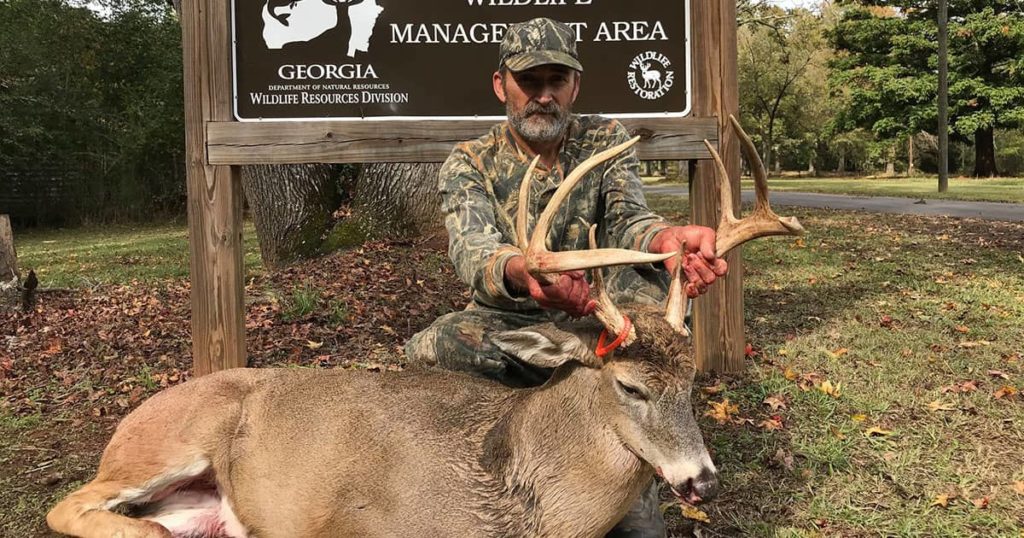
Public Land
If you don’t have access to private land, and don’t want to join a hunting club, there are other options. Fortunately for Georgia hunters, the state has over 1 million acres of public land in the form of national forests, national wildlife refuges, and wildlife management areas.
I have a whole other article dedicated to Georgia public land hunting that I would encourage you to check out, but I’ll hit on some of the high points here, as well.
The first thing you need to know about hunting public land is that season dates and regulations are often much different than they are for private land. That means you’ll need to locate public lands that you’re interested in hunting, then do your research on each to know when they’re open for hunting, and any special regulations you need to be aware of.
That information is available in the back of the current Georgia Hunting Regulations booklet.
One other point worth noting is that some public land hunts in Georgia require advanced application and a somewhat random drawing. These are known as quota hunts. I won’t dive into the details, because that’s a subject for an article of its own, but you can learn all about the available hunts and application deadlines in the state’s annual hunting regulations (linked above).
Step 4: Go Hunt! (or Learn How)
Once you have the proper hunting license and permits, complete hunter education training (if needed), and find a place to hunt, all that’s left to do is go hunt!
If you’re not sure where to start with the actual hunting process, consider signing up for one of Georgia’s Hunt and Learn opportunities. These are one to three-day training courses that include instruction on hunting tactics, game identification, and hunter safety, followed by the opportunity to hunt a specific game animal under the direction of a skilled expert.
The program offers courses for both youth and adults.
If you’d prefer to learn from the comfort of your home, I would highly recommend the National Deer Association’s Deer Hunting 101 online course. It offers an easy, self-paced learning experience through a series of instructional articles, photos and videos. And best of all, it’s affordable at just $29.99.
Final Thoughts
I’ve never met a hunter who regretted learning to hunt. And you won’t either! Take these four easy steps to get started today, and enjoy the best therapy there is – spending time in God’s great outdoors.

